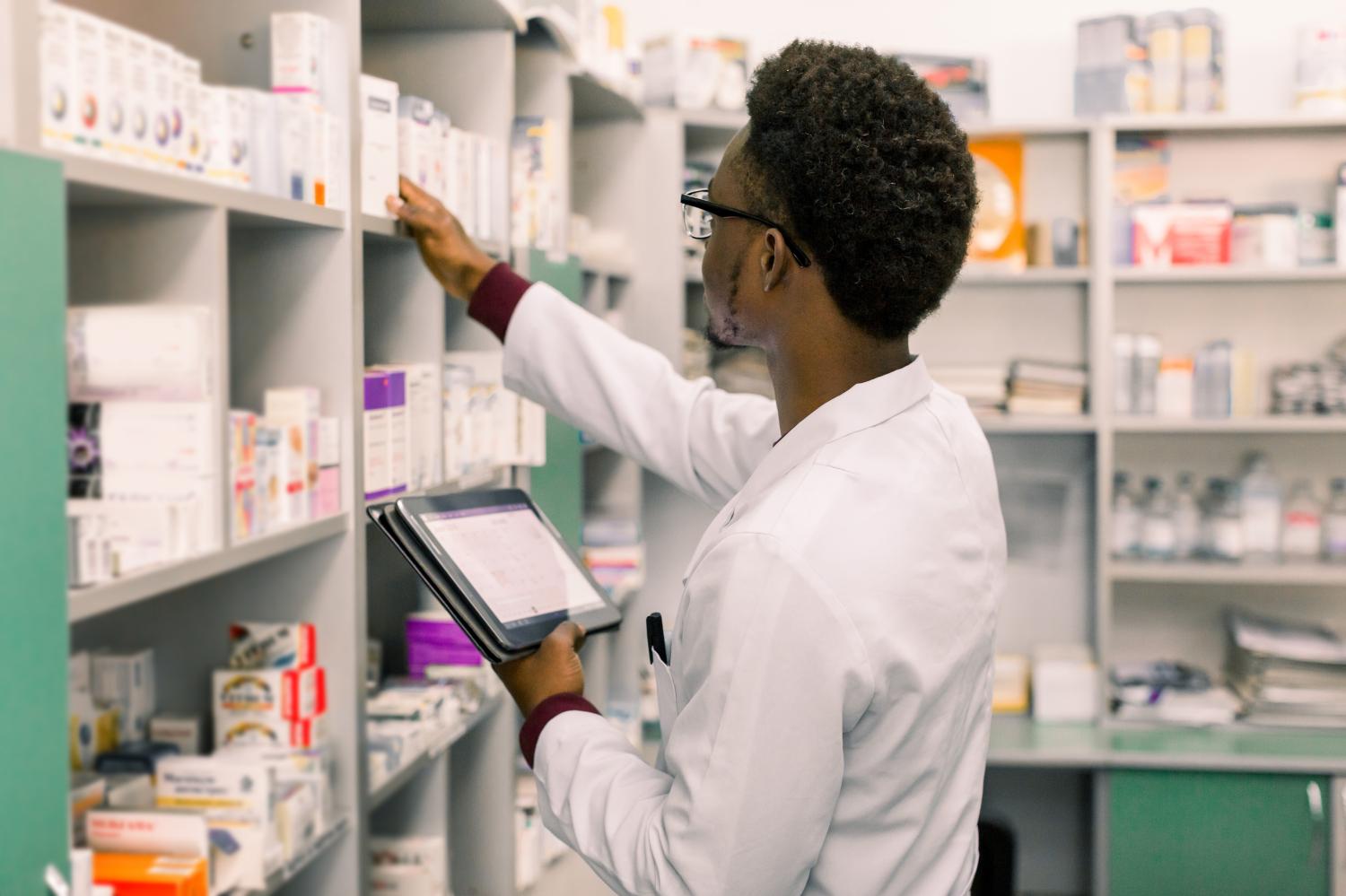
Your local community pharmacies
Every day about 1.6 million people visit a pharmacy in England.
Surrey Downs community pharmacists, like GPs, nurses, dentists, and other healthcare professionals, are part of the NHS family and can help you with medical advice and medicines in your community.
Find out how pharmacists can help you with medical advice and medicines in Surrey Downs.
Across Surrey Downs, our pharmacies range from large chain pharmacies, often on the high street or in supermarkets, to smaller independently owned pharmacies.
Many are open long hours offering healthcare advice, without the need for an appointment, when other health care professionals are unavailable.
The changing role of the community pharmacist means that they are providing clinical services alongside their traditional dispensing role.
This enables better integration and team working with the rest of the NHS, and support for their communities.
How can your pharmacist help you?
As qualified healthcare professionals, Pharmacists can offer clinical advice and over-the-counter medicines for a range of minor illnesses. They are also trained to provide health and wellbeing advice.
Pharmacists undertake a four-year Masters in Pharmacy degree course followed by a one year placement working in a pharmacy under the supervision of an experienced pharmacist, where on completion, they sit a professional exam and those who successfully complete it, can register as a pharmacist.
If your symptoms suggest something more serious, Pharmacists have the right training to make sure you get the help you need. This may mean they advise when you should see a GP, nurse or other healthcare professional.
Most pharmacies have a private consultation room where you can discuss issues with pharmacy staff without being overheard.
What can pharmacists help with?
Walk in and talk to your pharmacist about minor health concerns, without the need for an appointment, for symptoms such as:
- Sore throats
- Coughs, colds, and flu
- Tummy troubles
- Aches and pains
- Red eyes
- Sleeping problems
- Athlete's foot
- Mouth ulcers
- Constipation and diarrhoea
- Skin rashes
- Earache
- Cystitis
- Baby teething
The pharmacist or their trained staff members can help you, and most people live within easy reach of a pharmacy.
They often offer longer opening hours, so it's convenient to get the help and advice you need, without having to book an appointment.
What can your local community pharmacy help you with?
A wide range of services are offered in community pharmacies, including:
- A repeat dispensing service – allowing you to collect your regular repeat prescription from them, as required. Your GP will need permission to share information with your chosen pharmacist so you can get your medicines directly from your local pharmacy.
- NHS Pharmacy First service – Pharmacy First is a new service provided by NHS England to help you get access to the right care from the right person at the right time for seven common conditions that require advice and treatment.
Instead of having to go to your GP practice for this, you can go straight to a pharmacy offering Pharmacy First, or be referred by your GP Practice, NHS111 or another medical or emergency care setting.
The seven common conditions are: Acute Otitis Media * (ear infections) - age range: 1 to 17 years, Impetigo - age range: 1 year and over, Infected insect bites - age range: 1 year and over, Shingles - age range: 18 years and over, Sinusitus - age range: 12 years and over, Sore throat - age range: 5 years and over, Uncomplicated urinary tract infections - age range: 16 – 64 years (women only)
* Distance selling (online) pharmacies will not complete consultations for Acute Otitis Media - New Medicine service (NMS) – a service for people receiving their first prescription for a medicine to treat long term conditions.
- Safe disposal of unwanted medicines that you no longer use or are expired.
- Other services that may be available at your local pharmacy include: emergency and oral contraception, asthma inhaler use and advice, chlamydia screening and treatment, stop smoking service, blood pressure, cholesterol, and blood sugar testing, substance misuse service, including needle and syringe exchange schemes, weight management service and flu and COVID-19 vaccinations.

